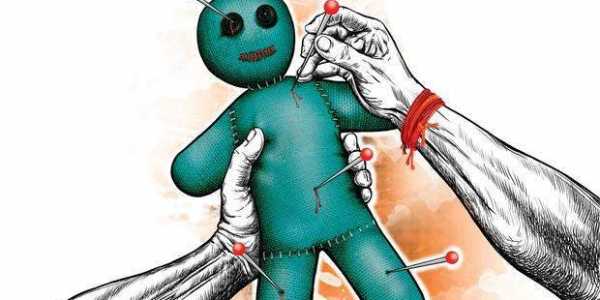Bhubaneswar : Though Odisha is striving for greater heights in various spheres, witchcraft and black magic, arising out of deep-rooted superstitions and beliefs of people, still act as a hindrance to the process of development.
The escalating cases of witch-hunting, branding children with a hot iron rods and inflicting burns on the body as a remedy for curing diseases and ailments – is claiming many innocent lives and leads to a catastrophic situation. Witch-hunt and superstitions are prevalent in areas like Keonjhar, Mayurbhanj, Rayagada, Nabarangpur and Ganjam districts of Odisha.
As per the tradition, several families at Bheemasahi village in Nabarangpur allegedly brand their children with hot iron on the occasion of “Chitalagi Amavasya” with a belief to keep them healthy.
Recently in January, five members of a family— who were believed to have indulged in witchcraft – were killed in Sundargarh district. The victims were a mother and four minor children of one family, including a 10 month old baby.
There has been constant rise in witch-hunt in the state. Around 99 cases were registered in 2017, 83 in 2016 and 58 in 2015 according to the statistics given by the crime branch of the state. The interiors of Mayurbhanj, Nabarangpur and Keonjhar – densely populated with tribals— are the worst hit districts accounting to 70 percent of cases registered in 2017.
Women are often seen being barbarically tortured, ostracized and even murdered for allegedly ‘performing black magic’. Hundreds of women lose their lives in rural Odisha due to false allegations of witchcraft and most of the cases are not reported as they are usually carried out by local communities.
Witch-hunt primarily target women and exploit India’s caste system and the culture of patriarchy prevailing in society. A wide range of doctrines and indigenous religions believe in supernatural powers and bad spirits. Beliefs based on witchcraft is becoming a challenge due to the acts of oppression—including psychological, emotional and physical abuse –which eventually snuff out innocent lives, especially women and children.
The reasons for the prevalence of witchcraft are due to the lack of education among tribals and poor development activities in their areas. Moreover, at times it is not the beliefs or the superstitions but gender and class discrimination that drives the people to perform such heinous acts.
Many studies and researches have also explained that “Superstition is only an excuse.” Many a time a woman is branded a witch for vested interests such as grab land from a woman and throw her out of the village or when women try to question social norms t the time of family disputes and rivalry.
Significantly, the state government enacted the Odisha Prevention of Witch Hunting Act, 2013 to check witchcraft. The existing legislation aims at prohibiting witch-hunting and other similar practices including branding a woman as a witch and causing harm or injury to any person. Witch doctors are also rendered illegal. This is indeed a commendable initiative taken by the state government and it would be more appreciated if the government continues to formulate one or more schemes to conduct awareness programme on superstitions and deep-rooted beliefs as it may deem proper.
Moreover, creating awareness drives and campaigns by the government and the media by mobilising the communities and educating the masses regarding the perils of witch-hunting may produce effective results. Strict implementation of the law will make it possible for the victims to ask for justice. Human Rights Commissions and civil society can also act as a watchdog on this issue. School curriculum need to incorporate courses on rationalist ideas, healthy thinking and studies based on reasons and science and should discourage irrational orthodox ideas based on superstition and black magic.
It is shocking to know that even in the 21st century , when Odisha is aiming to touch greater heights in terms of economy, infrastructure, education and healthcare facilities, people are still believe in black magic and witch-hunting.
The idea of making laws and spreading awareness to secure the problem may seem lucrative. But it would take longer for people to let go of their faith and beliefs on which they have based their entire lives.
It is necessary to make people realise that faith is what we make of it. With our perseverance, we could bring a change in our outlook. The moment people realise this, Odisha could guarantee a better tomorrow.
